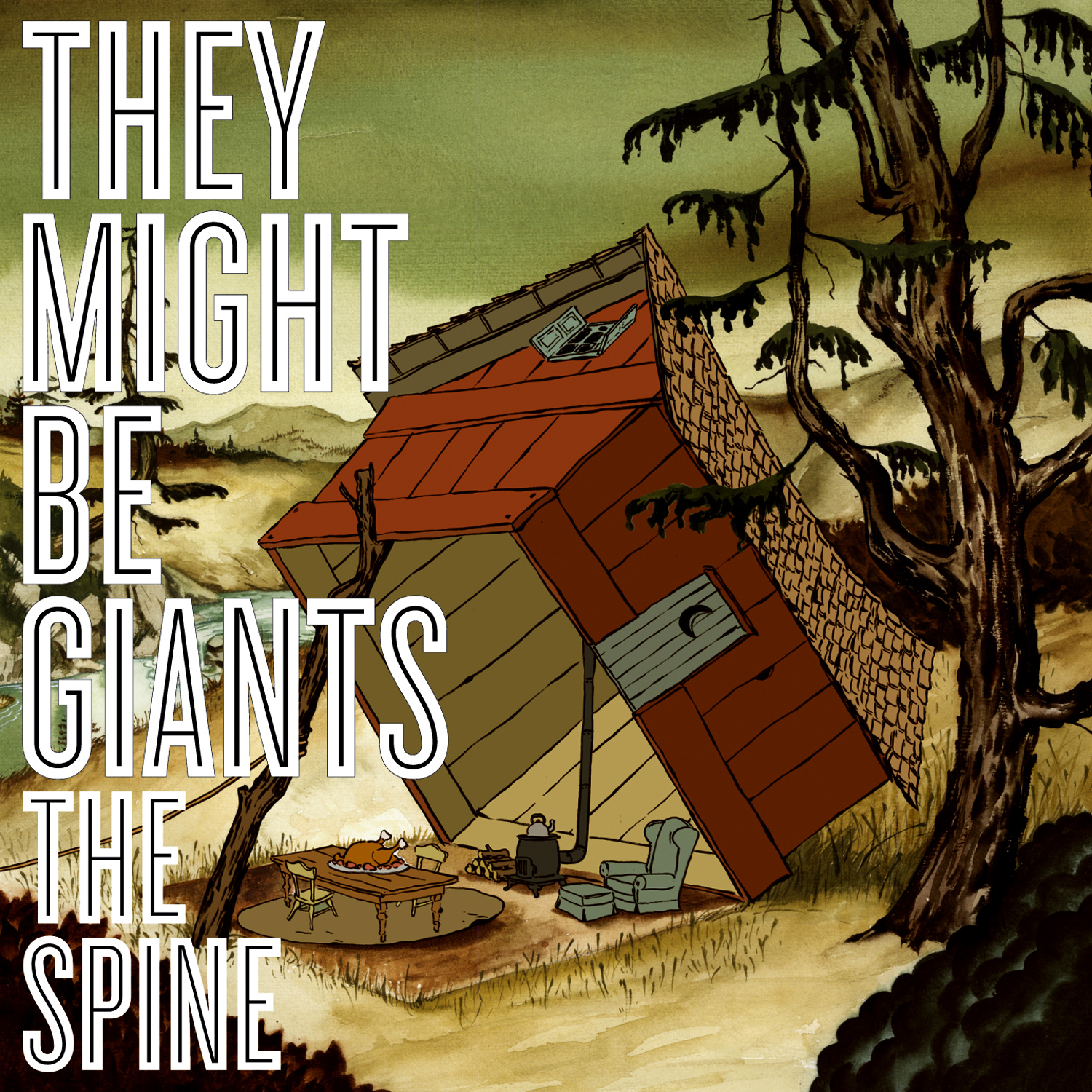
| release year | 2004 |
|---|---|
| type | album |
| listened to on | 2025-05-08 |
| new to me? | yes |
| favorite (linnell) | Experimental Film |
| favorite (flans) | I Can't Hide From My Mind |
| links | spotify, tmbw |
Holy SHIT this album is good. Wow. It's very rare that we get genuinely taken aback by the quality of an album from the get-go, but the second that The Spine started, I was immediately taken away by the presentation. For the next 35 minutes and 54 seconds, it felt like we fully broke.
The Spine is an album about having a spine. It's one of TMBG's most direct, in that way. It's spiteful, not in the sense that the album is angry (The Pink Album and Join Us), but in the sense that the album is about a type of person who's angry: who can never be wrong, who insists that their "having a back bone" is justification for cutting everyone away in their life.
This is, unfortunately, a very common type of person; it's a way of externalizing trauma. In that way, The Spine is about experiencing trauma in the background. Frankly, you could probably make the read that the narrator is the same person in the entire album. You could. Probably don't.
From the very beginning, Experimental Film is about overblown, enthusiastic confidence. The narrator cannot explain their vision, but they swear that it's going to be the best thing you've ever seen. They have half-baked ideas, ones that don't seem to cohere, expressed by cutting off the lines early — I already know how great it's. (Put a pin in that.) The vocals are insane on this track, which is common throughout the album; this is the hardest we've ever heard the Johns sing.
Spine, being short, expresses the main thematic conceit of the album: the narrator (in general), that being the type of person who this album talks about, deeply wishes on some level that they didn't need their confidence. They're projecting, on a fundamental level, and they really do want to stop. But they can't, because of... some reason. (Trauma. It's trauma.)
From there on out, we have various songs that build on themselves, indicating a type of self-fulfilling prophecy about "being stuck". Memo To Human Resources has maybe one of the best transitions ever out of Spine, and it's got a distinct tone of white-collar alienation leading to suicide; but the narrator doesn't need advice, they're down. They're fine with their pit, because they don't want to accept help; they work cyclically, repeatedly building around themself as in the lyrical structure of Wearing A Raincoat.
When you're paranoid, traumatized, and breaking down, you begin to preempt things, as in Prevenge. You get to the point where you think people can read your mind; Are you thinking about what I / Am?, as in Thunderbird, continuing the motif of broken lyrics and half-remembered things. The song shows the narrator drinking to forget, because they've never been wrong about anything in their life, and they're trying to make that be true rather than it being true. This theme of preempting criticism to the point of insanity continues in Bastard Wants To Hit Me, a song about assuming people are out to get you.
From there on out, The World Before Later On and Museum Of Idiots tie together to discuss escape fantasies, specifically about wanting to fast-forward time to a point where you don't need a Spine. Your brain can't take it anymore, and you want to beat the shit out of people, tearing down the things you seem as fundamentally broken; the world is wrong, and your anger: It's Kickin' In.
And everyone clapped. They all clapped, you're doing as well as you ever can. You promise. You broke, but it's worth it; this is the thesis of Au Contraire and Damn Good Times, songs about exuberant overconfidence to a fault. This is the point where the text of The Spine begins to reflect on TMBG as a whole, and the sonic confidence that runs throughout this album: they are showing their confidence, because they are redefining themselves (Mink Car).
But it comes to an end, as all things do. Broke In Two is about the narrator's relationship falling apart; you forgot it, because you're forgetting so many things these days. You would go back and do it again, but you know it had to end this way. You are like a Stalk of Wheat; you are fragile, broken, out of money, out of work, and tired, and you have nothing left. You are running out of ideas. You have nothing else you can do; your half-baked thoughts have caught up to you, and you come to the conclusion that I Can't Hide From My Mind, thereby contextualizing the album cover as being the house you hide in.
I guess I do talk a lot about this album like it does have one narrator. It really doesn't, but it does follow a kind of loose narrative structure. But when you're in this situation, you have nothing to do but